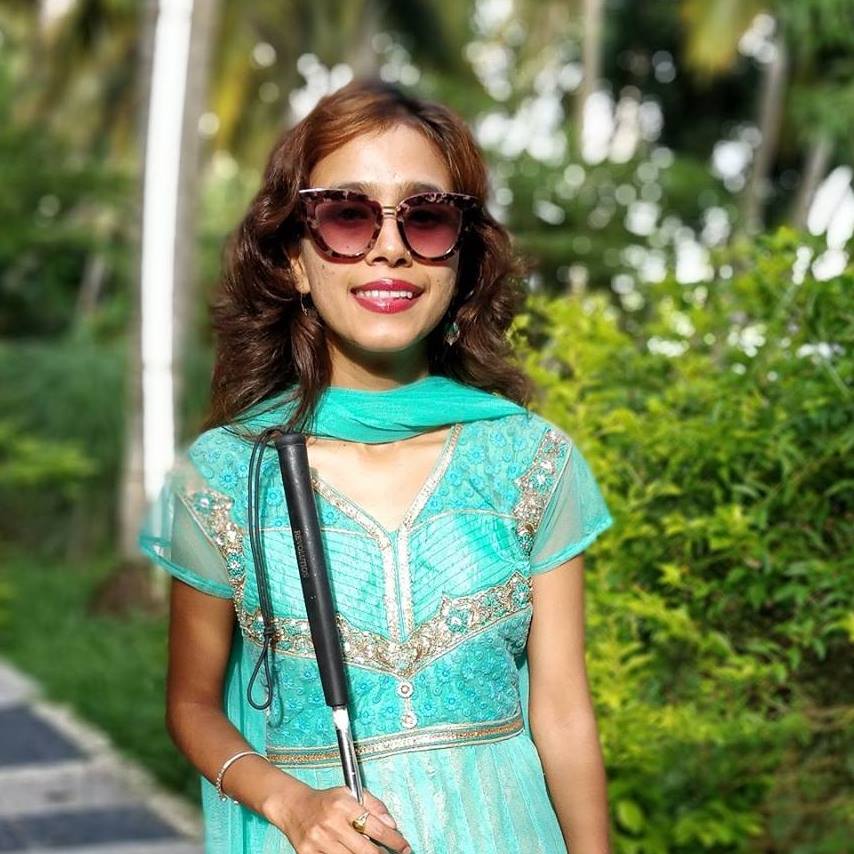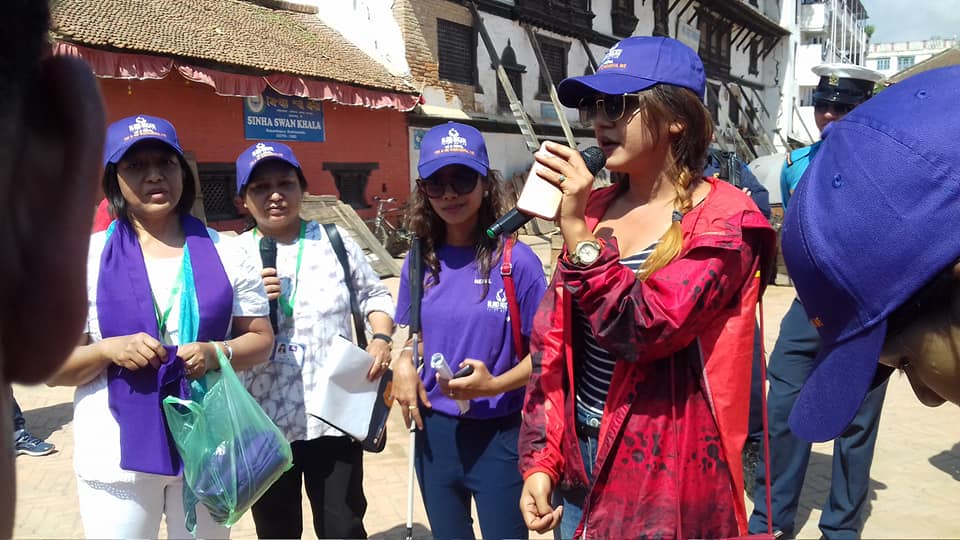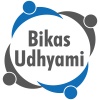Turning “Shocking Life” Into “Rocking Life”- The Story of Sristi KC, Founder, Blind Rocks!, SOCIAL CHANGEMAKERS BLOG ISSUE NO. 15
Sristi KC started her life like any other Nepali child. Born and raised in Bhaktapur, she loved playing with her friends, watching movies and dancing. She could see the things she touched, she could identify the things with her eyes. Then at 16, Srishti's life changed drastically. She became blind. Suddenly the light around her disappeared. She had to had to change everything she was used to and begin her new struggle from there. And she did it perfectly. She not only put herself forward defying all the hardships on her way, but she she also paved the way for other blind people. This is the story of Srishti KC and her journey of founding Blind Rocks! (http://www.blindRocks.org/), an organization that helps blind and visually impaired individuals to lead more fulfilling and empowered lives. The Catalyst sat down with her to know more about the story of resilience and positivity in the face of a life-changing challenge.
You could see when you were born, how did you become blind?
Yes, when I was born I could see. But, at 14, I had some redness and allergy in my eyes. I went to the hospital, I was given steroids. Because the doctor did not monitor it properly, I developed glaucoma. And within two years of being diagnosed with glaucoma, I became completely blind at the age of sixteen. That is when my new life began.

How did you feel once you became blind? How does your experience differ from those who are born blind?
Life is an adaptation. When there is a sudden change in your life, you will certainly struggle to adapt. When I could see, my lifestyle was completely different: the way I walked, read, interacted with people was quite normal. After I became blind there was no difference in my feelings and emotions, but the technical aspects of how I lead my life had changed. However, what I felt was that the struggle to adapt was not difficult. What was difficult was to gain acceptance from myself and from society. I was the same person, with the same feelings, passions and aspirations, but suddenly I was not Srishti anymore I was labeled disabled. That was the harsh reality I had to encounter immediately after being blind.
You have said in one of the interviews that when you lost your sight, you got the vision of your life. Can you interpret this paradox for our readers?
It sounds paradoxical, right? The truth is, I started to see and understand the world more clearly only when I became blind. I was compelled to become more mature. I was only sixteen, a teenager. It was my time to think about clothes, hairstyles, dating! But no. I had to prioritize issues to quickly decide where I wanted my life to go, how I wanted to define my life. I had to be a visionary person. I had to do something for individuals who were blind like me. So becoming blind actually gave me a vision and a sense of clarity about what I wanted to do with my life. Most people my age still find it hard to decide what they want out of life. I said this in that sense.How did Blind Rocks!! come to be?
To reiterate what I said earlier, when I became blind, a “disabled” person, I knew that I had to do something within this sector. There are a lot of misconceptions about people with disabilities in our society. The one that stood out for me was: if you are disabled, you are the government’s problem. I was shocked. The buzzwords for people with disability were “education, health, and employment”. They are seen as a charity case. So I asked, where are the colorful aspects of their life? Do able-bodied people only go to school and work, do they not enjoy other things in life? Yes, they do! Then why would you assume that disabled people do not want those things? We too are humans with feelings and emotions. We are people who enjoy art, movies, music and going on picnics. These are necessities for leading a happy, fulfilling life. I wanted to take these overshadowed aspects of life and use them as a tool to involve blind individuals in all spheres of life. To help people with disability in a new way I started Blind Rocks!!.
From the very beginning, I wanted Blind Rocks!! to be international so that it reaches everyone easily. After recognizing the gaps in the disability sector, and combining my own passions and skills I knew that I had to transform a “shocking” life into a “rocking” life. So I gave the name BlindRocks!! To my organization right after I finished my Bachelors.
What was the initial start? What is the prime focus of Blind Rocks!?
I had the vision and passion, but did not have experience in running an office. I needed professional skills. So I attended a school in Kerela (Kanthari: International Institute for Social Change), where they have special classes and courses for social visionaries. I learned how to run an organization there. And after returning back, I started Blind Rocks!.
At BlindRocks!! We focus on verbal and nonverbal communications. For example, a lot of individuals who are born blind do not know that we need to look at people when we speak, or that we move our hands, etc. It is because these are things you're learn incidentally and by observing other people. So we work on body language, etiquette, and behavior. We use theatre, dance, fashion, adventure sports, and other activities that would be considered “unconventional” for blind people.
What were the challenges you faced when you first started it?
The main challenge is to break the stereotypes of blind individuals and people with disability in general. We use unconventional methods, such as the ones I have mentioned before (theatre, dance, fashion, adventure sports) to challenge the public’s mindset about people with disability. BlindRocks!! wants to make people with disability more visible, to make our value visible.
I have noticed that there are generally two types of able-bodied individuals. Ones who underestimate the capacity of disabled people. They cannot comprehend how we can walk, dress ourselves and even eat. And the second category is of people who are too excited about the simplest of things that we do. They see us as extraordinary people. So it has been a challenge to find a balance between that two point of views.
What is your advice to able-bodied people who either underestimate people with a disability or see every person with a disability as extraordinary?
I think it is really important that able-bodied people interact with people with disability as much as possible. Only then this barrier of the idea that people with disability are different will break. The more you interact, the more you work together, the more you understand. That is why Blind Rocks!! focuses on activities that blind and non-blind individuals both can enjoy. It bridges that gap.
What we are asking for is the space for us to recognize our limits. We definitely need help but that help should be given according to need, not according to assumptions. We have solutions as to how we want to be helped. You can just ask. So the more able-bodied people mingle with people with disability, the more of these preconceived notions of “disability” will disappear.
What is the environment like for people with disabilities in Nepal?
I think it’s getting better. There have been a lot of positive changes. The youth is very aware, even traffic police and drivers in public transportation. People with disability are given priority in seating, people are more understanding these days. It is great that people are getting more curious. I think that openness from able-bodied individuals and the disability side needs to continue.
What’s the role of Blind Rocks!! in this process of social change?
Blinc Rocks!! on one hand empowers blind individuals to lead a more normal life, and the other hand does advocacy and awareness work for able-bodied individuals, too. Nationally, we have reached villages and cities. Internationally, we have reached both developed and developing countries. We do community sensitization activities. For example, organizing a “Blind Walk” where able-bodied individuals walked blindfolded. This was to show how disable friendly or unfriendly our streets are, how when one of our senses does not function other senses are heightened. So that it is easier for people to empathize. We have also an inclusive organization system. Our board consists of 9 board members; out of which 4 are fully blind, 2 are half blind, and 3 individuals can see fully. This is the kind of ideal society we imagine where people from different capabilities irrespective of their physical condition can work and contribute together.

Everyone has different abilities and needs. Blindness is just a condition, and every blind person’s personality and capabilities are different. I think we need to open up more choices and opportunities so that they can know what fits best for their skills and capacity.
As I mentioned before, whenever people speak about disability, buzzwords such as “education, health, and employment” are thrown around. People’s energies are focused on only those three things, and I am not saying they are not important but it limits our potential. We are only able to showcase our skills and capacities within the limited scope of what is already planned for us. This often inhibits blind people and other individuals with disabilities from realizing their full potential.
We should be given the opportunity to explore our capacities in a trustworthy and open environment, just like able-bodied individuals. We need that level of empowerment. We do not want a person to be accepted only because of their disability, we also do not want a person to be rejected because of their disability. That is why Blind Rocks!! does not directly work in employment, but we do work on the personal and professional development of blind individuals so that they can raise their own voice and demand their rights.
How can people join your network?
We have memberships for both blind and able-bodied allies. They are of different types: golden, silver, corporate, and life membership. We also run a youth club that both disabled and non-disabled individuals can join. We meet on the last Saturday of every month and organize discussions on various topics such as the environment, politics, etc. We are citizens first so it is important to be informed about all issues.
A lot of young individuals read our blog. What do you want to say to them?
Everyone in this world lives on the basis of their skills and ability, not on the basis of their disability. Every individual is born with some handicap; some are extremely shy and cannot speak in public, some cannot do Maths. For example, I can read and write in darkness, I am sure you cannot do that. So, in that sense, I am more “able” than you. So instead of pointing out someone’s disability, we seek their abilities and highlight that. We should all make an effort to create an environment where other people’s abilities are enhanced. Only then we can live more completely. We shouldn’t compete in life, we should aim to complete.
Ultimately, what do you wish people living with blindness, their friends and family knew?
I wish they knew the advantages of being blind! We focus so much on the difficult aspects of life as a blind person that we forget that imperfection leads to innovation. Maybe the so-called “imperfection” or “disability” in me will give way to a new creation? There is an opportunity. Maybe I would not have a visionary, who knows? But because I became blind at sixteen years old, I was compelled to think quick. I sat down and made a list of the advantages of being blind in a notebook. I became more focused.I learned to be a better communicator. I had to speak up to make myself more visible, but the point is I learned how to solve problems from every angle.
So yes, blindness and disability also have its advantages. We have the right to be different without being labeled as disabled.
Website: http://www.blindrocks.org/
